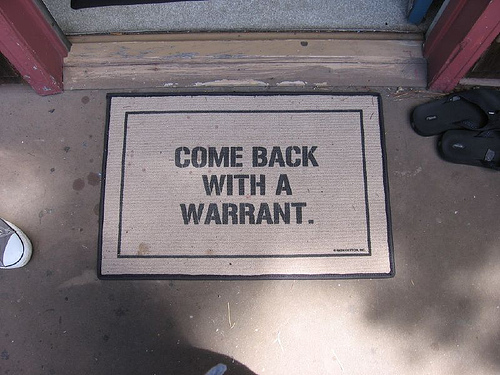The April 2018 raid on the law office of President Trump’s attorney Michael Cohen provides occasion to examine ethical duties to maintain client confidences and California procedures for protecting privileged information in attorney files. In the Cohen matter, the federal court considered whether a “privilege team,” consisting of agents and prosecutors not involved in the underlying investigation, U.S. Attorneys’ Manual § 9-13.420, or a special master should review documents for privilege. After the Government withdrew its objection, the court appointed a former federal judge as special master.
In California, an attorney has a duty to “maintain inviolate the confidence, and at every peril to himself or herself to preserve the secrets, of his or her client.” Cal. Bus. & Prof. Code § 6068(e)(1). This principle of confidentiality applies to matters protected by the attorney-client privilege, the work product doctrine, and ethical standards of confidentiality. Cal. Rules of Prof’l Conduct R. 3-100 & cmt.; Cal. Rules of Prof. Conduct R. 1.6 & cmt. (effective Nov. 1, 2018). In addition to avoiding voluntary disclosure of

the client’s confidences, an attorney has an affirmative duty to “claim the privilege whenever he is present when the communication is sought to be disclosed and is authorized to claim the privilege.” Cal. Evid. Code § 955.
When a search warrant is issued for documents possessed by an attorney “who is not reasonably suspected of engaging or having engaged in criminal activity related to the documentary evidence,” the court shall appoint a special master to be present during the warrant’s execution and to seal items the attorney identifies as privileged to be taken to court for a hearing. Cal. Penal Code § 1524(c); see Cal. Evid. Code § 915. If, as in the Cohen matter, the documents are held by an attorney who is a subject of the investigation, Section 1524(c) does not apply, but the attorney still has an ethical duty to assert the privilege to protect client confidences. Cal. Evid. Code § 955. In People v. Superior Court (Laff), 25 Cal. 4th 703, 720 (2001), the California Supreme Court held in those circumstances “the superior court has an obligation to consider and determine claims that materials seized pursuant to a search warrant . . . are protected by the attorney-client privilege or work-product doctrine and thus should not be inspected by or disclosed to law enforcement authorities.” The decision does not contemplate use of a governmental privilege team, but recognizes the superior court’s inherent power to appoint a special master to assist with the review.
The attorney-client privilege does not apply “if the services of the lawyer were sought or obtained to enable or aid anyone to commit or plan to commit a crime or a fraud.” Cal. Evid. Code § 956(a). Seized materials falling within the “crime-fraud exception” to the privilege are disclosable to prosecutors. Courts may parse through privileged materials to determine if there is a prima facie case that the crime-fraud exception applies, as exemplified in State Farm Fire & Cas. Co. v. Superior Court (Taylor), 54 Cal. App. 4th 625, 647-51 (1997).
Al Boro specializes in business litigation and antitrust, criminal defense, and technology law. He is a member of BASF’s Legal Ethics Committee.


